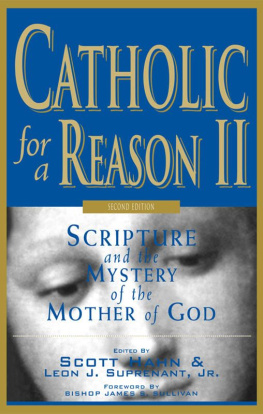Scott Hahn [Hahn - Signs of Life: 40 Catholic Customs and Their Biblical Roots
Here you can read online Scott Hahn [Hahn - Signs of Life: 40 Catholic Customs and Their Biblical Roots full text of the book (entire story) in english for free. Download pdf and epub, get meaning, cover and reviews about this ebook. year: 2009, publisher: Image, genre: Religion. Description of the work, (preface) as well as reviews are available. Best literature library LitArk.com created for fans of good reading and offers a wide selection of genres:
Romance novel
Science fiction
Adventure
Detective
Science
History
Home and family
Prose
Art
Politics
Computer
Non-fiction
Religion
Business
Children
Humor
Choose a favorite category and find really read worthwhile books. Enjoy immersion in the world of imagination, feel the emotions of the characters or learn something new for yourself, make an fascinating discovery.
- Book:Signs of Life: 40 Catholic Customs and Their Biblical Roots
- Author:
- Publisher:Image
- Genre:
- Year:2009
- Rating:4 / 5
- Favourites:Add to favourites
- Your mark:
Signs of Life: 40 Catholic Customs and Their Biblical Roots: summary, description and annotation
We offer to read an annotation, description, summary or preface (depends on what the author of the book "Signs of Life: 40 Catholic Customs and Their Biblical Roots" wrote himself). If you haven't found the necessary information about the book — write in the comments, we will try to find it.
Scott Hahn, the bestselling author of The Lambs Supper and Reasons to Believe, celebrates the touchstones of the Catholic life, guiding readers to a deeper faith through the Churchs rites, customs, and traditional prayers.
Signs of Life is beloved author Scott Hahns clear and comprehensive guide to the Biblical doctrines and historical traditions that underlie Catholic beliefs and practices. Devoting single chapters to each topic, the author takes the reader on a journey that illuminates the roots and significance of all things Catholic, including: the Sign of the Cross, the Mass, the Sacraments, praying with the saints, guardian angels, sacred images and relics, the celebration of Easter, Christmas, and other holidays, daily prayers, and much more.
In the appealing conversational tone that has won him millions of devoted readers, Hahn presents the basic tenets of Church teachings, clears up common misconceptions about specific rituals and traditions, and responds thoughtfully to the objections raised about them. Each chapter concludes with loving, good-natured, inspiring advice on applying the Churchs wisdom to everyday life.
From the Hardcover edition.
ReviewLifelong Catholics realize that it usually takes a convert to help us appreciate and better understand the customs and practices we too often take for granted. Scott Hahn does just that in this immensely reable yet substantive loving look at Catholic prayer, devotions, and beliefs. Most Reverend Timothy M. Dolan, Archbishop of New York
There is genius in Catholicism and once again Scott Hahn unveils it like the masterpiece that it is. Every chapter of Signs of Life is filled with insights and practices that will change the way you live your life and celebrate your faith.
Matthew Kelly, New York Times bestselling author of Rediscovering Catholicism and The Rhythm of Life
Things done for too long can become a habit and habits have a way of losing their meaning. In this long awaited treasure of a book, Scott Hahn reveals the historical and biblical roots of so many Catholic practices. Finally Catholics will not only know what to do, but why they do it. Raymond Arroyo, New York Times bestselling author and host of EWTNs The World Over Live
Professor Hahns purpose is both devotional and apologetic. In showing how Catholic popular piety is scripturally grounded, he explains practices that shape Catholic life and help us grow in grace. This is a book that will be helpful to individuals and to the Church as a whole. Francis Cardinal George, OMI, Archbishop of Chicago
For decades non-Catholics and even some perplexed Catholics have questioned a number of the beliefs and especially the devotional acts of the Catholic Church. Scott Hahn addresses these questions in Signs of Life, producing crystal-clear explanations of the Churchs traditional practices. His own background as a convert makes him the perfect person to write this book. Fr. Benedict J. Groeschel, CFR
Scott Hahn has given us a great con...
About the AuthorScott Hahn is founder and president of the St. Paul Center for Biblical Theology (SalvationHistory.com). A professor at Franciscan University of Steubenville, he also holds the Pope Benedict XVI Chair of Biblical Theology at St. Vincent Seminary in Latrobe, Pennsylvania. He is the author of many books, including The Lambs Supper (Doubleday), Hail, Holy Queen (Doubleday), Kinship by Covenant (Yale), and A Pocket Guide to the Bible (Our Sunday Visitor). His academic work has appeared in Catholic Biblical Quarterly, Journal of Biblical Literature, and Currents in Biblical Research. Dr. Hahn is editor of the Ignatius Catholic Study Bible and Letter & Spirit: A Catholic Journal of Biblical Theology. He lives in Steubenville, Ohio.
Scott Hahn [Hahn: author's other books
Who wrote Signs of Life: 40 Catholic Customs and Their Biblical Roots? Find out the surname, the name of the author of the book and a list of all author's works by series.

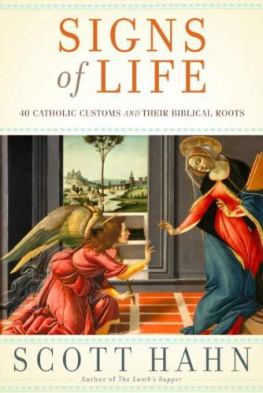

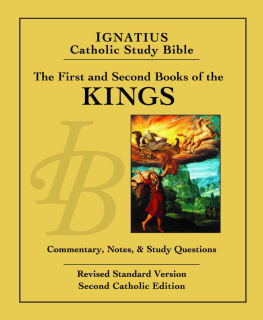
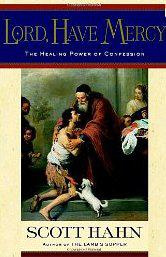
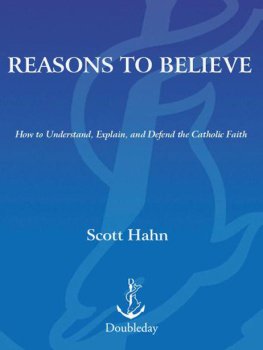
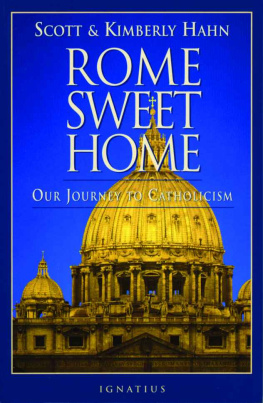
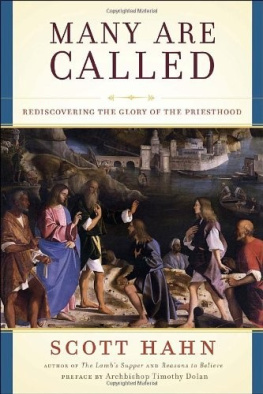
![Scott Hahn [Inconnu(e)] - Letter and Spirit: From Written Text to Living Word in the Liturgy](/uploads/posts/book/134755/thumbs/scott-hahn-inconnu-e-letter-and-spirit-from.jpg)
